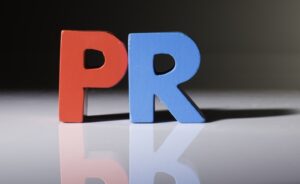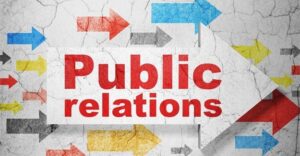The definition of public relations is the strategic practice of building and maintaining a mutually beneficial relationship between a company and its target audience through communication. Its primary goal is to create a positive image and manage reputation. PR uses tools like media relations, social media, events, speaking engagements, sponsorships, and content creation.
A public relations firm can help a brand create a strategy to reach the target audience, build awareness, and foster trust. PR plays a crucial role in a brand’s success by building and maintaining positive stakeholder relationships. It allows companies to enhance their reputation, manage crises, and differentiate themselves from competitors.
Third-party approval
Public relations provides third-party endorsement, making it a more credible and authentic form of communication. It comes from an independent source, rather than the brand itself. PR professionals build relationships with journalists and influencers to amplify a brand’s message and reach its target audience.
PR crisis management
PR professionals handle crisis management, which is crucial for a company’s reputation. A crisis can harm a brand’s image, but PR professionals help prepare for potential crises. In case of a crisis, they work quickly to manage the situation and lessen the damage.
Differentiation
Public relations in marketing can make a brand stand out in a crowded marketplace. Consumers are bombarded with advertising and marketing messages, but PR can help a brand connect with its target audience on a deeper level. When companies include public relations in marketing campaigns, they can tell the brand’s story in a compelling way and create an emotional connection with consumers. This connection can lead to long-term loyalty.
Building relationships
Public relations is vital for building relationships with stakeholders. Customers, employees, investors, and the community at large are all included. Open and transparent communication with these groups builds trust and strengthens a brand’s reputation.
Thought leadership
PR can establish thought leadership for a brand. It positions executives or spokespeople as experts in their field, making the brand a leader in its industry. This builds credibility and trust with customers, investors, and other stakeholders.
Reputation
Public relations is a cost-effective way to build a brand’s reputation. Unlike advertising, PR is often more affordable and has a longer-lasting impact. A successful event or media placement can generate positive coverage and exposure for a brand that can last for weeks or even months.
Brand equity
Public relations can enhance brand equity, which is the intangible value of a brand. A strong brand can attract high-quality employees, command a premium price, and have a competitive advantage. PR can help to increase a brand’s value by establishing thought leadership and building a positive reputation.




